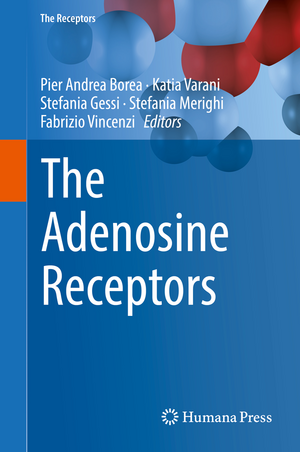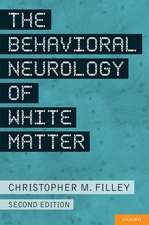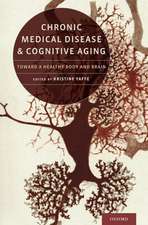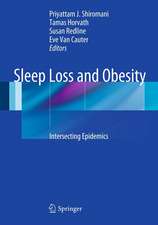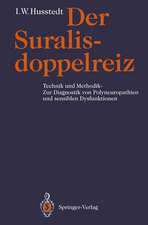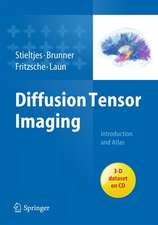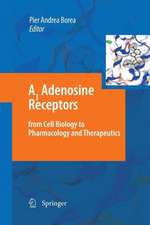The Adenosine Receptors: The Receptors, cartea 34
Editat de Pier Andrea Borea, Katia Varani, Stefania Gessi, Stefania Merighi, Fabrizio Vincenzien Limba Engleză Hardback – 9 aug 2018
| Toate formatele și edițiile | Preț | Express |
|---|---|---|
| Paperback (1) | 959.50 lei 6-8 săpt. | |
| Springer International Publishing – 19 ian 2019 | 959.50 lei 6-8 săpt. | |
| Hardback (1) | 965.97 lei 6-8 săpt. | |
| Springer International Publishing – 9 aug 2018 | 965.97 lei 6-8 săpt. |
Din seria The Receptors
- 15%
 Preț: 697.15 lei
Preț: 697.15 lei - 5%
 Preț: 1934.34 lei
Preț: 1934.34 lei - 18%
 Preț: 1231.32 lei
Preț: 1231.32 lei - 18%
 Preț: 1236.99 lei
Preț: 1236.99 lei - 5%
 Preț: 1424.89 lei
Preț: 1424.89 lei - 18%
 Preț: 959.19 lei
Preț: 959.19 lei - 18%
 Preț: 950.84 lei
Preț: 950.84 lei - 5%
 Preț: 1106.69 lei
Preț: 1106.69 lei - 18%
 Preț: 1228.29 lei
Preț: 1228.29 lei - 18%
 Preț: 1229.91 lei
Preț: 1229.91 lei - 18%
 Preț: 969.13 lei
Preț: 969.13 lei - 18%
 Preț: 955.88 lei
Preț: 955.88 lei - 5%
 Preț: 1433.10 lei
Preț: 1433.10 lei - 15%
 Preț: 657.73 lei
Preț: 657.73 lei - 15%
 Preț: 645.79 lei
Preț: 645.79 lei - 18%
 Preț: 1218.69 lei
Preț: 1218.69 lei - 24%
 Preț: 1076.12 lei
Preț: 1076.12 lei - 15%
 Preț: 652.31 lei
Preț: 652.31 lei - 5%
 Preț: 1615.04 lei
Preț: 1615.04 lei -
 Preț: 397.16 lei
Preț: 397.16 lei - 18%
 Preț: 1556.46 lei
Preț: 1556.46 lei - 18%
 Preț: 1227.84 lei
Preț: 1227.84 lei - 15%
 Preț: 697.00 lei
Preț: 697.00 lei - 18%
 Preț: 944.19 lei
Preț: 944.19 lei - 18%
 Preț: 959.36 lei
Preț: 959.36 lei - 15%
 Preț: 647.27 lei
Preț: 647.27 lei
Preț: 965.97 lei
Preț vechi: 1178.01 lei
-18% Nou
Puncte Express: 1449
Preț estimativ în valută:
184.84€ • 193.47$ • 153.84£
184.84€ • 193.47$ • 153.84£
Carte tipărită la comandă
Livrare economică 31 martie-14 aprilie
Preluare comenzi: 021 569.72.76
Specificații
ISBN-13: 9783319908076
ISBN-10: 3319908073
Pagini: 490
Ilustrații: XX, 593 p. 71 illus., 29 illus. in color.
Dimensiuni: 155 x 235 mm
Greutate: 1.03 kg
Ediția:1st ed. 2018
Editura: Springer International Publishing
Colecția Humana
Seria The Receptors
Locul publicării:Cham, Switzerland
ISBN-10: 3319908073
Pagini: 490
Ilustrații: XX, 593 p. 71 illus., 29 illus. in color.
Dimensiuni: 155 x 235 mm
Greutate: 1.03 kg
Ediția:1st ed. 2018
Editura: Springer International Publishing
Colecția Humana
Seria The Receptors
Locul publicării:Cham, Switzerland
Cuprins
Purinergic signalling: an historical overview.- Regulation of extracellular adenosine.- Adenosine receptors: structure, distribution and signal transduction.- Binding thermodynamic characteristics of adenosine receptor ligands.- A1 adenosine receptor agonists, antagonists and allosteric modulators.- A2A adenosine receptor: structure, function and medicinal chemistry.- Medicinal chemistry of A2B adenosine receptors.- A3 adenosine receptor: medicinal chemistry of orthosteric and allosteric ligands and structural probing.- Adenosine Receptors and Neuroinflammation.- Adenosine receptors as paradigm to identify dimer/oligomers of G-protein-coupled receptors and as targets in Parkinson’s disease.- Adenosine receptors in Alzheimer’s disease.- What is the role of adenosine receptors in Huntington Disease?.- Adenosine receptors: a novel target for homeostatic control of cognition.- Roleof Adenosine Receptors in Epileptic Seizures.- Adenosine signaling in brain Ischemia.- Adenosine and traumatic brain injury.- Adenosine and its receptors in pain.- Adenosine signalling in the injured heart.- Adenosine receptors in the lungs.- Adenosine and renal function in health and disease.- Adenosine regulation of the immune system.- Adenosine receptors regulate skeletal biology.- Adenosine receptors in gestational diabetes mellitus and obesity.- Adenosine receptors: current research and their involvement in cancer.- Adenosine receptors as a biological pathway for pulsed electromagnetic fields.
Notă biografică
Pier Andrea Borea received his degree in Chemistry Summa cum Laude from the University of Ferrara in 1967. He moved as Visiting Professor to Preclinical Research Department, Sandoz, Basel (CH) and to Medical Research Council Molecular Neurobiology Unit, Cambridge (UK). At present he is Honorary Professor of Pharmacology and member of the Board of Directors at the University of Ferrara. He is member of the Italian Society of Pharmacology and Purine Club. He has published 400 publications in international journals and contributed about 20 chapters to International Books. He has participated in more than 200 congresses, presenting main, oral and poster communications. He is also named as inventor in about 20 Patents. He has been invited to give about 50 Plenary Lectures at International Symposia and at several Universities. His main field of interest is represented by the study, at the molecular level, of drug-receptor interactions and in particular of the P1 adenosine receptor system.Katia Varani received her degree in Biology in 1988 and her Ph.D. in Cellular and Molecular Pharmacology in 1995 from the University of Ferrara. She is currently Associate Professor of Pharmacology at the Medical Sciences Department of the University of Ferrara. Her research activity mainly involve pharmacological, biochemical and molecular characterization of adenosine receptors in human neurodegenerative diseases, chronic and neuropathic pain, inflammatory diseases and cancer. She has published 250 publications on peer-reviewed international scientific journals, 15 book chapters and several communications in international and national congresses. She is member of the Italian Society of Pharmacology and Purine Club.
Stefania Gessi received her degree in Biology Summa cum Laude from University of Ferrara in 1994 and her Ph.D. in Cellular and Molecular Pharmacology in 2000 under the guidance of Professor Pier Andrea Borea. She moved at Centro RicercheSchering-Plough, Parco Scientifico San Raffaele (Milano) and at the Department of Physiology and Pharmacology, section of Molecular Neuropharmacology, Karolinska Institutet (Stockholm). She is currently Associate Professor of Pharmacology in the Medical Sciences Department of the University of Ferrara. Her research activity focused mainly on the pharmacological, biochemical and molecular study of adenosine receptors in inflammation and cancer and is documented by more than 130 publications on peer-reviewed international scientific journals, 18 book chapters and several communications in international and national congresses. She is member of the Italian Society of Pharmacology and Purine Club.
Stefania Merighi received her degree in Biology Summa cum Laude at the University of Ferrara (Italy) in 1997 and obtained her Ph.D. in Cellular and Molecular Pharmacology at the same University in 2003. Currently, she is Associate Professor of Pharmacology at the University of Ferrara, a position she has held since 2017. Her research activities primarily focus on the pharmacological, biochemical and molecular study of GPCRs in oncology and neuroinflammation and has published extensively in this area. Her research activity is documented by more than 100 publications on peer-reviewed International scientific journals and several communications in International and National congresses. She is member of the Italian Society of Pharmacology and Purine Club.
Fabrizio Vincenzi received his degree in Biology from University of Ferrara in 2004 and obtained his Ph.D. in Cellular and Molecular Pharmacology in 2008 at the section of Pharmacology of the University of Ferrara. His main research field is represented by the study of the drug-receptor interaction with specific interest in the thermodynamic and kinetic aspect of the ligand-receptor binding. He primarily focused his research on the study of G-protein coupled receptors and in particular on adenosine receptors and their involvement in neurodegenerative diseases, pain, chronic inflammatory diseases, anxiety and cancer. He has published 80 scientific papers in peer-reviewed international journals and is member of the Italian Society of Pharmacology and Purine Club.
Stefania Gessi received her degree in Biology Summa cum Laude from University of Ferrara in 1994 and her Ph.D. in Cellular and Molecular Pharmacology in 2000 under the guidance of Professor Pier Andrea Borea. She moved at Centro RicercheSchering-Plough, Parco Scientifico San Raffaele (Milano) and at the Department of Physiology and Pharmacology, section of Molecular Neuropharmacology, Karolinska Institutet (Stockholm). She is currently Associate Professor of Pharmacology in the Medical Sciences Department of the University of Ferrara. Her research activity focused mainly on the pharmacological, biochemical and molecular study of adenosine receptors in inflammation and cancer and is documented by more than 130 publications on peer-reviewed international scientific journals, 18 book chapters and several communications in international and national congresses. She is member of the Italian Society of Pharmacology and Purine Club.
Stefania Merighi received her degree in Biology Summa cum Laude at the University of Ferrara (Italy) in 1997 and obtained her Ph.D. in Cellular and Molecular Pharmacology at the same University in 2003. Currently, she is Associate Professor of Pharmacology at the University of Ferrara, a position she has held since 2017. Her research activities primarily focus on the pharmacological, biochemical and molecular study of GPCRs in oncology and neuroinflammation and has published extensively in this area. Her research activity is documented by more than 100 publications on peer-reviewed International scientific journals and several communications in International and National congresses. She is member of the Italian Society of Pharmacology and Purine Club.
Fabrizio Vincenzi received his degree in Biology from University of Ferrara in 2004 and obtained his Ph.D. in Cellular and Molecular Pharmacology in 2008 at the section of Pharmacology of the University of Ferrara. His main research field is represented by the study of the drug-receptor interaction with specific interest in the thermodynamic and kinetic aspect of the ligand-receptor binding. He primarily focused his research on the study of G-protein coupled receptors and in particular on adenosine receptors and their involvement in neurodegenerative diseases, pain, chronic inflammatory diseases, anxiety and cancer. He has published 80 scientific papers in peer-reviewed international journals and is member of the Italian Society of Pharmacology and Purine Club.
Textul de pe ultima copertă
This book traces the history of adenosine receptor research from molecular biology to medicinal chemistry to behavior, including their implications in disease and potential strategies as therapeutic targets. It provides the reader with a comprehensive overview of the adenosine receptors that includes information on all subtypes - A1, A2A, A2B and A3. Aspects addressed include the most up to date information on their functional distribution in the nervous and peripheral systems, behavioral roles in inflammation, cancer, pain and neurological diseases such as Huntington’s disease, Epilepsy, Parkinson’s disease and Alzheimer’s disease.
Caracteristici
Provides detailed overview of all adenosine receptor types Addresses the role of adenosine receptors in disease Focuses on adenosine receptors' potential as therapeutic targets
